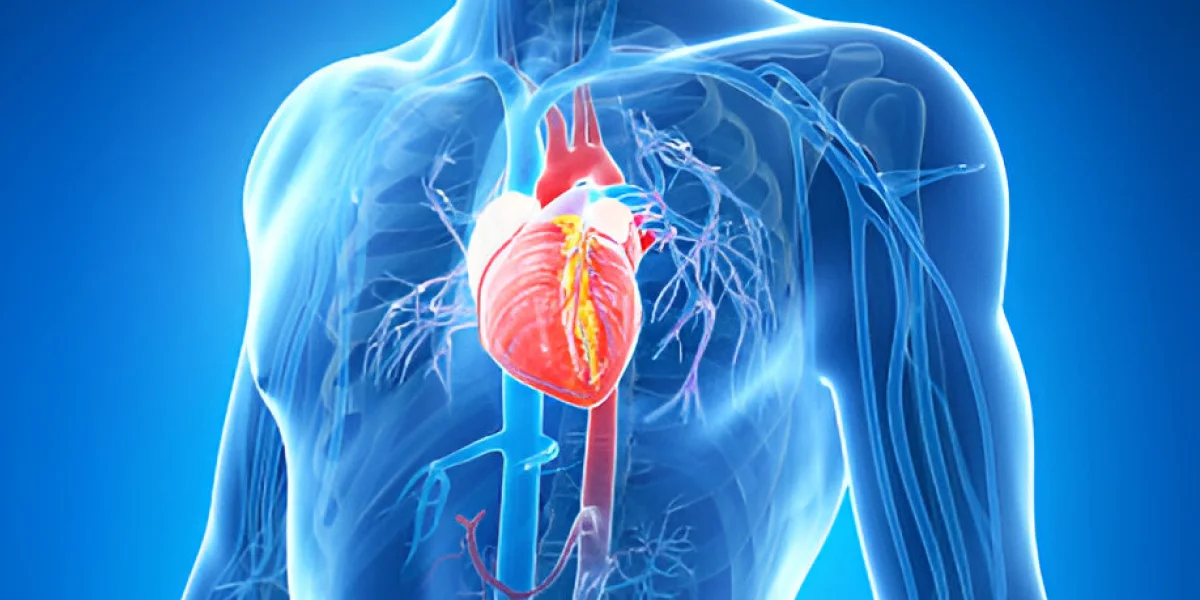Cardiac Arrhythmia

Arrhythmia: Understanding and Treating Irregular Heartbeats
The heart normally beats in a regular, coordinated pattern, but in arrhythmia, the heart may beat too fast, too slow, or irregularly. While some arrhythmias are harmless, others can lead to serious health complications such as stroke, heart failure, or even cardiac arrest. At [Clinic/Hospital Name], Dr. Deep Chandh Raja, a leading cardiac electrophysiologist in Chennai, specializes in diagnosing and treating arrhythmias to restore your heart’s rhythm and improve your quality of life.
What is Arrhythmia?
Arrhythmia refers to an irregular heartbeat, where the heart may beat too fast (tachycardia), too slow (bradycardia), or erratically. This disruption in the heart’s electrical system can affect its ability to pump blood effectively, leading to symptoms like:
- Palpitations (fluttering or pounding heartbeat)
- Chest pain or discomfort
- Dizziness or lightheadedness
- Fainting (syncope)
- Fatigue or weakness
- Shortness of breath
Causes and Risk Factors
Arrhythmias are widespread, affecting millions worldwide. For example:
- Heart disease (e.g., coronary artery disease, heart failure)
- Electrolyte imbalances (e.g., low potassium or magnesium)
- Thyroid disorders (hyperthyroidism or hypothyroidism)

Diagnosis of Arrhythmia
Dr. Deep Chandh Raja uses advanced diagnostic tools to identify arrhythmias, including:
- Electrocardiogram (ECG): Records the heart’s electrical activity.
- Holter Monitor: Tracks heart rhythm over 24-48 hours.
- Event Monitor: Records heart activity over weeks for infrequent symptoms.
- Echocardiogram: Assesses heart structure and function.
- Electrophysiology Study (EPS): Maps the heart’s electrical system to pinpoint arrhythmias.
Treatment Options for Arrhythmia
Treatment depends on the type and severity of the arrhythmia. Options include:
Medications
- Antiarrhythmic drugs: To control irregular heartbeats.
- Beta-blockers: To slow the heart rate.
- Blood thinners: To reduce stroke risk in AFib.
Procedures
- Cardioversion: A controlled electric shock to restore normal rhythm.
- Catheter Ablation: Destroys abnormal tissue causing arrhythmias using radiofrequency or cryotherapy.
Implantable Devices
- Pacemakers: Regulate slow heart rhythms.
- Implantable Cardioverter-Defibrillators (ICDs): Detect and treat life-threatening arrhythmias.
Lifestyle Changes
- Regular exercise, a heart-healthy diet, stress management, and avoiding triggers like alcohol and caffeine.
Get in Touch
Contact Info
Email Address
deepchandh@gmail.com
Kavery Alwarpet
Director of Cardiac Electrophysiology and Senior Consultant in Cardiology.
No: +91 8056204449.
Kavery Vadapalani
Director of Cardiac Electrophysiology and Senior Consultant in Cardiology..
No: +91 9043632236.
Raja Multi-Specialty Clinic
Plot no 1, Nolambur Phase 1, VGN Nagar Phase 1, Nolambur, Ambattur Industrial Estate, Chennai, Tamil Nadu 600037
No : +918608601590
Services

Arrhythmia: Understanding and Treating Irregular Heartbeats
The heart normally beats in a regular, coordinated pattern, but in arrhythmia, the heart may beat too fast, too slow, or irregularly. While some arrhythmias are harmless, others can lead to serious health complications such as stroke, heart failure, or even cardiac arrest. At [Clinic/Hospital Name], Dr. Deep Chandh Raja, a leading cardiac electrophysiologist in Chennai, specializes in diagnosing and treating arrhythmias to restore your heart’s rhythm and improve your quality of life.
What is Arrhythmia?
Arrhythmia refers to an irregular heartbeat, where the heart may beat too fast (tachycardia), too slow (bradycardia), or erratically. This disruption in the heart’s electrical system can affect its ability to pump blood effectively, leading to symptoms like:
Palpitations (fluttering or pounding heartbeat)
Chest pain or discomfort
Dizziness or lightheadedness
Fainting (syncope)
Fatigue or weakness
Shortness of breath
How Common is Arrhythmia?
Arrhythmias are widespread, affecting millions worldwide. For example:
- Atrial Fibrillation (AFib): Affects 2-3% of the general population, with prevalence increasing with age.
- Premature Heartbeats: PACs and PVCs are common, with PACs detected in up to 60% of people wearing a Holter monitor.
- Ventricular Arrhythmias: Less common but life-threatening, often associated with underlying heart disease.


Causes and Risk Factors
Arrhythmias can be caused by:
- Heart disease (e.g., coronary artery disease, heart failure)
- Electrolyte imbalances (e.g., low potassium or magnesium)
- Thyroid disorders (hyperthyroidism or hypothyroidism)
- Lifestyle factors (e.g., smoking, excessive alcohol, stress)
- Genetic conditions (e.g., Long QT syndrome, WPW syndrome)
Risk factors include age, family history, high blood pressure, diabetes, and previous heart surgery.
Types of Arrhythmias
Arrhythmias are classified based on where they originate in the heart:
Bradyarrhythmias (Slow Heart Rate)
1. Bradyarrhythmias (Slow Heart Rate)
Sinus Bradycardia: A slower-than-normal heart rate, often seen in athletes or due to medications.
Heart Block: A delay or blockage in the heart’s electrical signals, ranging from mild to severe.
2. Tachyarrhythmias (Fast Heart Rate)
Atrial Fibrillation (AFib): A common irregular, fast heartbeat originating in the atria.
Atrial Flutter: Similar to AFib but with a more regular pattern.
Supraventricular Tachycardia (SVT): Rapid heartbeats originating above the ventricles.
Ventricular Tachycardia (VT): A life-threatening rapid heartbeat originating in the ventricles.
Ventricular Fibrillation (VFib): A chaotic, irregular heartbeat that can lead to cardiac arrest.
3. Premature Heartbeats
Premature Atrial Contractions (PACs): Extra beats originating in the atria.
Premature Ventricular Contractions (PVCs): Extra beats originating in the ventricles.
4. Other Specific Types
Long QT Syndrome: A genetic condition that increases the risk of life-threatening arrhythmias.
Wolff-Parkinson-White (WPW) Syndrome: An extra electrical pathway causing rapid heartbeats.
Complications of Arrhythmia
If left untreated, arrhythmias can lead to:
Stroke (due to blood clots in AFib)
Heart failure (from prolonged irregular pumping)
Sudden cardiac arrest (in cases of VT or VFib)
Fatigue and reduced quality of life
Diagnosis of Arrhythmia
Dr. Deep Chandh Raja uses advanced diagnostic tools to identify arrhythmias, including:
Electrocardiogram (ECG): Records the heart’s electrical activity.
Holter Monitor: Tracks heart rhythm over 24-48 hours.
Event Monitor: Records heart activity over weeks for infrequent symptoms.
Echocardiogram: Assesses heart structure and function.
Electrophysiology Study (EPS): Maps the heart’s electrical system to pinpoint arrhythmias.
Treatment Options for Arrhythmia
Treatment depends on the type and severity of the arrhythmia. Options include:
1. Medications
Antiarrhythmic drugs: To control irregular heartbeats.
Beta-blockers: To slow the heart rate.
Blood thinners: To reduce stroke risk in AFib.
2. Procedures
Cardioversion: A controlled electric shock to restore normal rhythm.
Catheter Ablation: Destroys abnormal tissue causing arrhythmias using radiofrequency or cryotherapy.
3. Implantable Devices
Pacemakers: Regulate slow heart rhythms.
Implantable Cardioverter-Defibrillators (ICDs): Detect and treat life-threatening arrhythmias.
4. Lifestyle Changes
Regular exercise, a heart-healthy diet, stress management, and avoiding triggers like alcohol and caffeine.
Why Choose Dr. Deep Chandh Raja?
Expertise in Complex Arrhythmias: Dr. Raja is one of the few electrophysiologists in India skilled in advanced procedures like epicardial VT ablation.
Comprehensive Care: Runs an exclusive arrhythmia clinic with trained nurses and technicians.
Patient-Centered Approach: Provides personalized treatment plans tailored to your needs.



